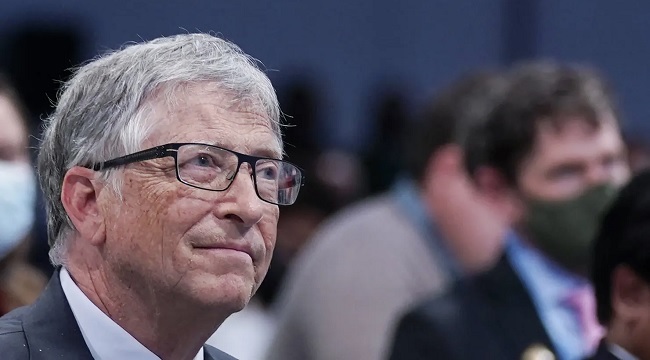Bill Gates, Chair of the Gates Foundation, has called on the Nigerian government to maintain its strong commitment to eradicating polio, warning that the virus remains a threat despite past progress.
Speaking during a media roundtable in Lagos on Wednesday, Gates emphasized the urgency of continuing polio eradication efforts, especially as global funding becomes more constrained.
“Now is not the time to stop,” he said. “The virus is still circulating, particularly in states like Sokoto, Kano, Katsina, and Kebbi. We need to intensify action in these areas.”
Gates stressed the importance of Nigeria’s continued partnership with the Global Polio Eradication Initiative (GPEI) and praised the tireless efforts of frontline health workers. He warned that the emergence of variant polio cases could undermine public trust in vaccines and hinder progress.
To counter misinformation, he noted that the Gates Foundation is supporting Nigerian-led initiatives and GPEI partners such as UNICEF and WHO in directly engaging affected communities. “The key to halting outbreaks lies in swift, high-quality response campaigns and in closing immunity gaps,” he added.
Gates also underlined the role of strong routine immunization in maintaining a polio-free status, pointing to Gavi, the Vaccine Alliance, as a key contributor in helping lower-income countries access the inactivated polio vaccine.
“Nigeria is crucial to the global goal of eradicating this disease,” he said. “With sustained investment and partnership, I’m confident we can reach a world where no child is threatened by polio.”
He acknowledged Nigeria’s recent progress, revealing that detections of polio were down by approximately 40% in the first quarter of 2025 compared to the same period in 2024. He also noted improvements during the April immunization campaign as encouraging signs of progress.
Gates praised Africa’s historic success in eliminating wild poliovirus, calling it a major public health victory driven by government leadership, surveillance, and effective partnerships. Still, he cautioned that ongoing surveillance remains essential to detect and respond swiftly to new outbreaks.
Polio, a highly infectious disease caused by a virus that invades the nervous system, can cause irreversible paralysis and primarily affects children under five. While there is no cure, it is preventable through vaccination.
Although Nigeria was declared free of wild polio in 2020, the country has recently experienced a resurgence of circulating poliovirus type 2 (cVPV2), with 122 confirmed cases reported between January 2024 and March 10, 2025. Most of these cases occurred in northern states, prompting the government to consider new strategies to curb transmission.
During his visit to Nigeria, Gates met with President Bola Tinubu and engaged with key federal and state officials to discuss reforms in primary health care. He is also attending the Goalkeepers Nigeria event, which highlights Africa’s innovation landscape, and meeting with local scientists and partners involved in shaping the nation’s artificial intelligence strategy and scaling health innovations.

